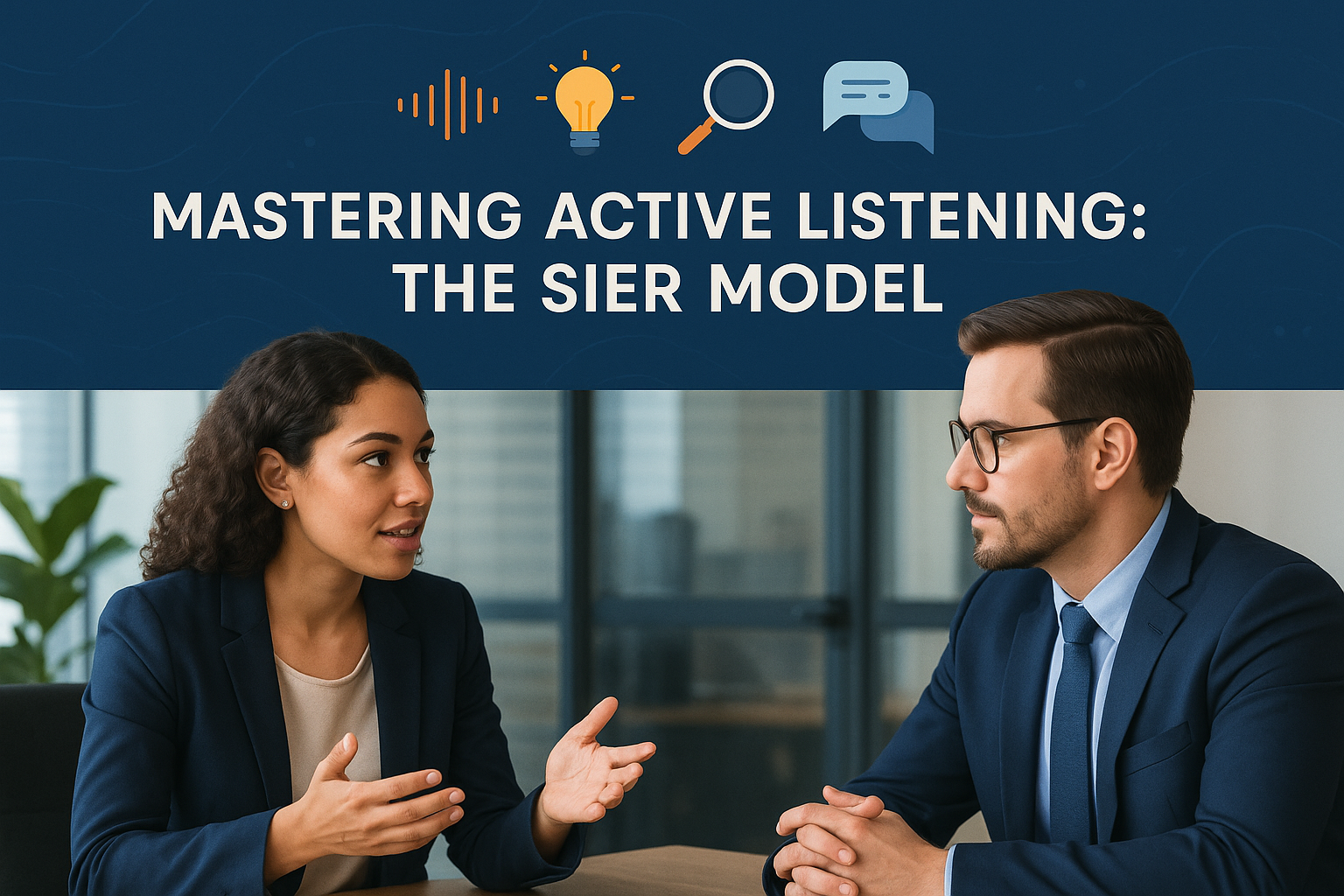In our fast-paced, distraction-filled world, truly listening has become a rare skill. We hear words, but do we really listen? The SIER Hierarchy of Active Listening, developed by communication experts Lyman Steil, Larry Barker, and Kittie Watson, provides a powerful framework for mastering this essential skill.
Understanding the SIER Model
SIER represents four critical phases of active listening that build upon each other, creating a hierarchy from simply hearing sounds to engaging in meaningful dialogue. Each phase requires conscious effort and full engagement.

Sensing - The Foundation
Sensing is the physiological process of receiving auditory and visual stimuli. It's about paying attention to what's being communicated through words, tone, body language, and facial expressions. Eliminate distractions, make eye contact, observe body language, and be fully present.
Interpreting - Making Meaning
Interpreting is understanding and assigning meaning to the sensory information you've received. This is where you decode the message, considering both literal words and underlying context. Ask clarifying questions and paraphrase for confirmation to ensure accurate understanding.
Evaluating - Critical Analysis
Evaluating involves critically analyzing the message by assessing its validity, logic, and relevance. You're separating fact from opinion, identifying assumptions, and determining credibility. Maintain objectivity while respecting the speaker.
Responding - Completing the Loop
Responding is the visible outcome of the listening process and demonstrates that you've heard, understood, and processed the message. Your response validates the speaker and transforms listening into dialogue. Provide feedback, ask meaningful questions, and summarize key points.
Why Active Listening Matters
When people feel genuinely heard, they trust you more. Active listening builds trust, prevents misunderstandings, enhances problem-solving, improves relationships, and increases your influence.
In the workplace, active listening helps leaders understand employee concerns beyond surface complaints. In personal relationships, it reveals deeper needs and builds emotional connection.

Developing Your Skills
Practice mindful presence by treating each conversation as important. Allow silence, cultivate curiosity, and redirect attention when distracted. Avoid pitfalls like pseudo-listening, selective listening, or rushing to fix problems before fully understanding them.

The Path Forward
The SIER Hierarchy provides a roadmap for becoming a better listener, but knowing the model isn't enough. Mastery comes from conscious, consistent practice.
Start today. In your next conversation, move deliberately through each phase of SIER: Sense fully. Interpret carefully. Evaluate thoughtfully. Respond meaningfully.

Don’t miss this opportunity to upgrade your HR operations and join the growing list of businesses in Sri Lanka achieving success with GalleryHR.
GalleryHR is committed to helping Sri Lankan businesses thrive with smarter, more efficient HR solutions. Partner with us today and experience the difference.

0 comments